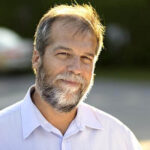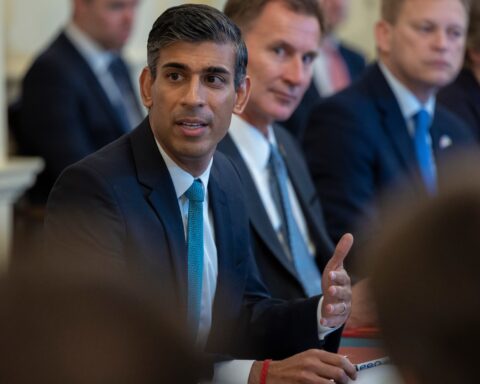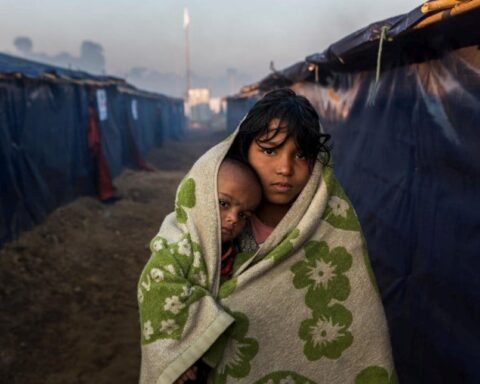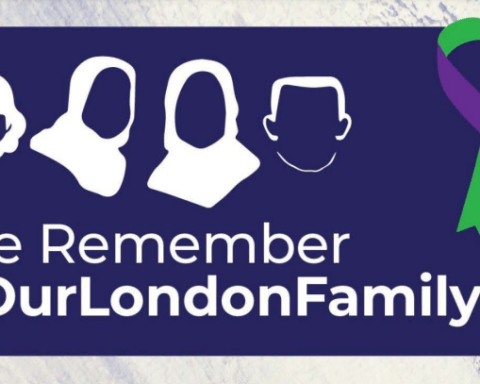Recent terror attacks in Europe have unnerved Canadians and many wonder which nation or what out-of-the-way tourist spot may be the next venue for a suicide bomber. New Canadian Media asked two experts on the evolution of terrorism, Amarnath Amarasingham and Phil Gurski, to give us their latest threat perceptions.
This interview was conducted by e-mail.
NCM: Do recent attacks in western Europe, including some involving refugees, and the anti-immigrant sentiment stoked by Brexit alter your views on the threat faced by Canada?
PHIL: The terrorist threat to Canada is not more significant now than it was a year ago (i.e. during the Paris attacks – see Ralph Goodale’s statement). The recent events in France and Germany do not have a direct bearing on what may happen in Canada: that is why the Canadian government does not tend to raise the level in the aftermath of overseas attacks. The level is set based on intelligence and relates directly to the threat to this country.
AMAR: Having said that, I do think many people are worried about copycat attacks, especially by individuals who are already inspired by the ISIS (Islamic State) or AQ (Al Qaeda) message. As we saw in Europe in July, several attacks happened almost back to back. This is often not a coincidence, but involves individuals who see other attacks and are inspired to launch their own. Or, more operationally speaking, see a law enforcement crack down around the corner and speed up their own plans.
NCM: As you know, Canada is at the forefront of resetting refugees caught in the Syrian quagmire. Do recent events give you pause?
PHIL: With respect to the refugee issue, my guess would be that the small number of attacks tied to refugees in Europe would not play into the threat to Canada. The situations in Europe and Canada are starkly different. Europe was faced with an onslaught of millions of refugees whom they were not able to screen: hence it was possible for those with ties to terrorist groups to mingle with legitimate refugees. Canada took in far fewer and these were carefully vetted by CSIS (Canadian Security Intelligence Service) and CBSA. (Canadian Border Services Agency). While it is possible that an extremist would be able to get through, it is less likely. Here is a link to my blogs on the refugee issue here and here. Canada has never had the same scale of anti-immigrant lunacy we are seeing in the wake of Brexit and I do not think we ever will – at least not in the near future. Canadians are largely pro-immigration – we have been raised that way.
AMAR: Canadians are certainly pro-immigration, but I think it’s within bounds. As we saw with the last election, most Canadians (and polls confirm this) make a distinction between immigrants and refugees. They see the latter as somehow illegitimate, as people who milk the system, as people who are potentially dangerous and so on. And as we also saw with the last election, when attacks happen abroad, like the Paris attacks, where one of the attackers was rumored to have traveled on a fake passport through migrant networks, it does have an effect here. This happens even though it was one person, and, as Phil says, we are separated from these conflict zones by large bodies of water, which allows us to choose who we let in very carefully.
[Canadians] see [refugees] as somehow illegitimate, as people who milk the system, as people who are potentially dangerous and so on.
NCM: Phil has previously written about radicalization being an “idiosyncratic” process: there is perhaps no pre-determined pathway. Does that make the challenge of dealing with radicalization an impossible task?
PHIL: It is not “impossible” to deal with radicalisation to violence even if the process is idiosyncratic. The inputs are unique to every person: the outputs (or the signs) are usually quite obvious to those who know what to look for (see my book The Threat from Within for a fuller discussion). I am no longer privy to the “chatter” about Canada.
AMAR: I agree with most of that, but there’s a difference between whether groups “out there” hate us and whether we are making our citizens feel included and welcome. On the one hand, there is no real evidence that increased inclusion prevents radicalization to violence. In fact, I’ve interviewed fighters who still love the country they grew up in, never experienced racism, etc. They left to fight in Syria because they saw it as a religious obligation to defend fellow Muslims.
NCM: What’s the latest “chatter” about Canada? Are we in the crosshairs of the various terrorist groups or are we less so because of our humanitarian and empathetic response to the refugee crises?
PHIL: I am no longer privy to the “chatter” about Canada. In a weird way, Amar is closer to this now than I am. It must be said, however, that there never was much “chatter” about Canada when I was with CSIS or CSE (Communications Security Establishment). We have never been a primary target of any Islamist terrorist group. This is not to say we can down tools and lower our vigilance but we will never garner the same attention as the US, the UK, France or others.
AMAR: We are certainly on the radar. Canada often shows up in speeches by ISIS spokesman Adnani, and in some of the jihadist Twitter and Telegram platforms. The question is whether “chatter” constitutes a real threat and something we should put our resources into protecting against. A good example are these “kill lists” that often get published by pro-ISIS hacking groups online. These lists are published in fairly obscure, by mainstream standards, jihadi platforms and the only people who often know about them are people like me and Phil, who have nothing better to do than to watch this stuff. A recent kill list had thousands of names for example. So, yes, we should be vigilant, but we should also be careful not to over-react.
NCM: Lastly, are we more safe or less safe as a result of the change in government in Ottawa last fall? The Liberals have made “inclusion” a big part of their narrative, including immigrant and refugee inclusion. Does that bode well to minimize the risk of terrorism and radicalization?
PHIL: If you look at the latest Dabiq (#16), you see a section (page 30) where IS tells us why it hates us. Whether we have a Conservative or Liberal (or even NDP!) government is irrelevant. Terrorist groups like IS have a laundry list of grievances against everyone and they don’t take the time to read about our more “inclusive” society and change their view. We are, to put it simply, an enemy because of who and what we are and the likelihood that this will change is next to nil. Still, it must be stressed that we are relatively safe in Canada.
Whether we have a Conservative or Liberal (or even NDP!) government is irrelevant.
AMAR: Phil is right that for some of these groups, the bar for inclusion is quite high – like some of these “Sharia4Belgium” type groups who don’t feel “included” unless they are living under Sharia Law. It’s not a level of inclusion that people in the West are ever going to accept. On the other hand, I think we in Canada are indeed doing something right, even if we can’t really put our finger on what that might be. The challenge is to not screw it up.
Phil Gurski worked for more than three decades in Canadian intelligence, including 15 at Canadian Security Intelligence Service (CSIS), and is the author of the Threat from Within and the forthcoming Western Foreign Fighters (Rowan and Littlefield).
Amarnath Amarasingam is a Fellow at The George Washington University’s Program on Extremism and tweets at @AmarAmarasingam
Phil Gurski is a former terrorism analyst at the Canadian Security Intelligence Service (CSIS). He specializes in radicalization and homegrown Al Qaeda/Islamic State/Islamist-inspired extremism and has published several books, including the forthcoming When Religions Kill: how extremists justify violence through faith.” He is a member of New Canadian Media’s board of directors.





